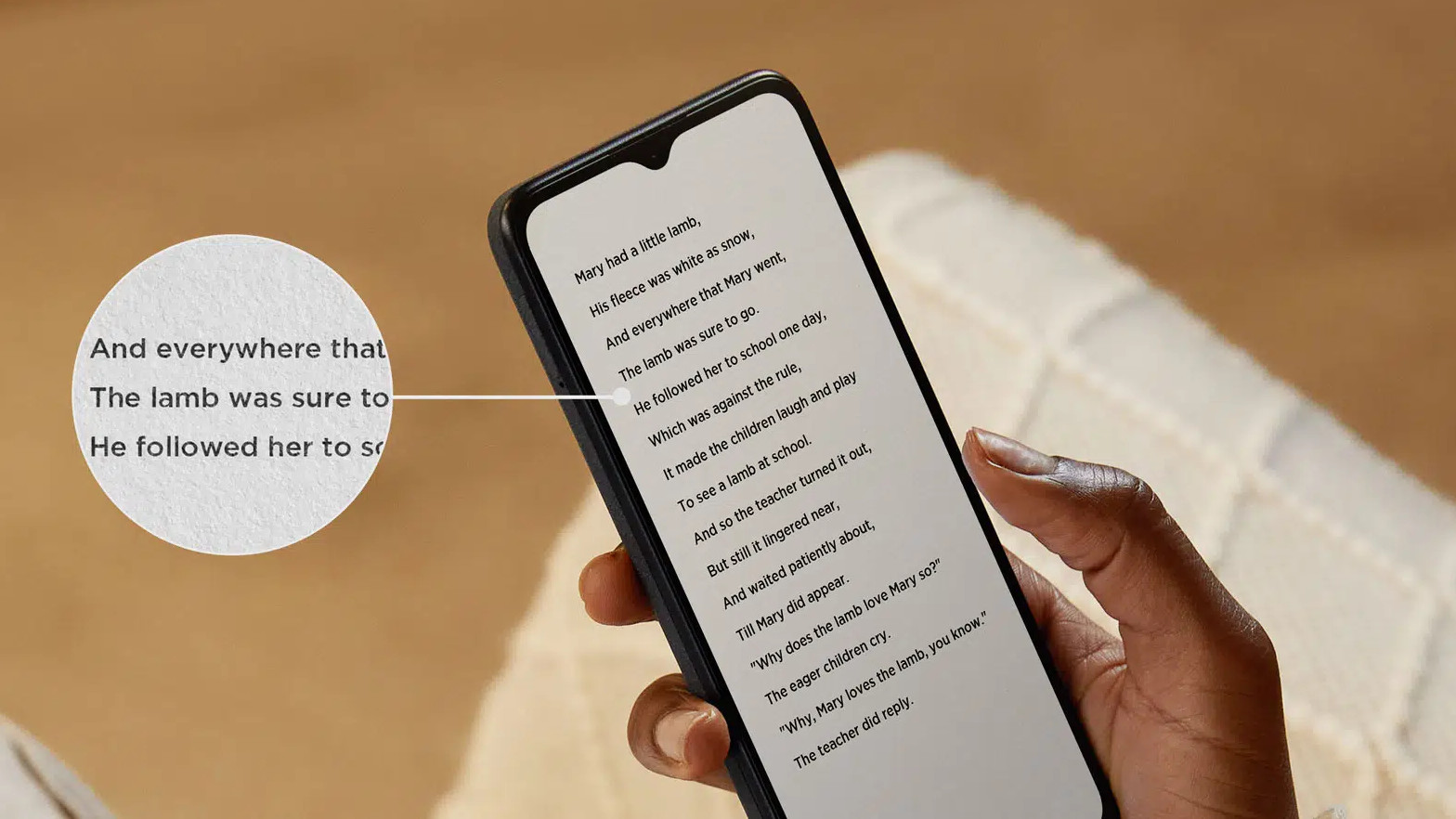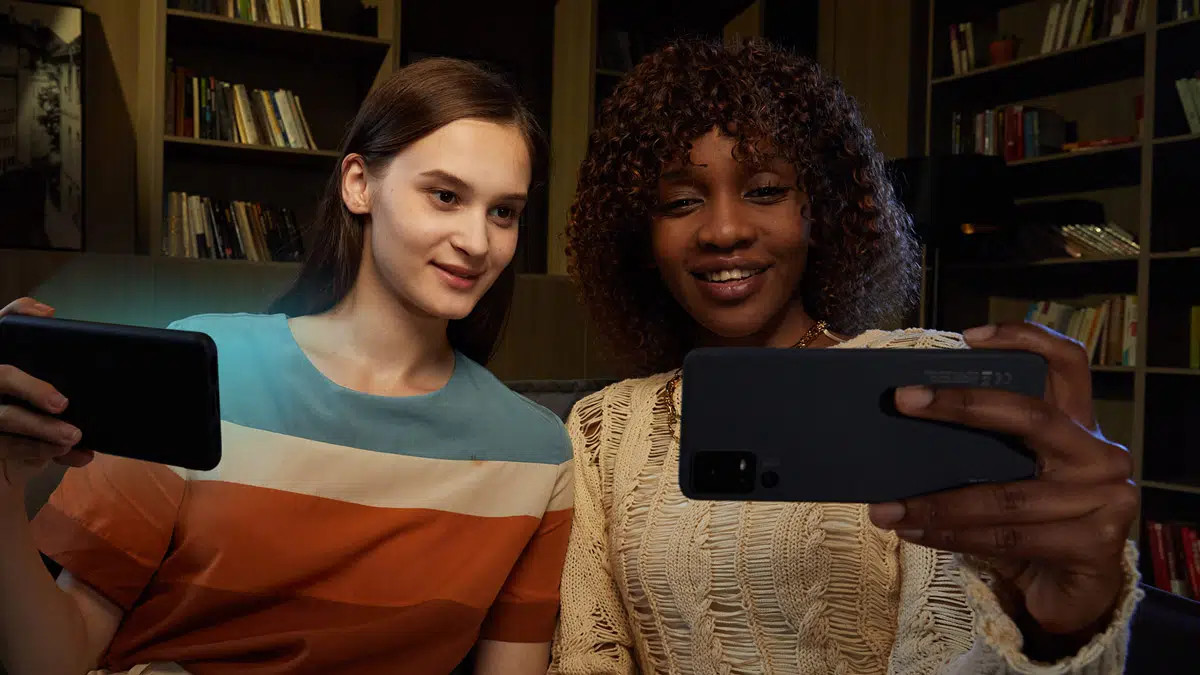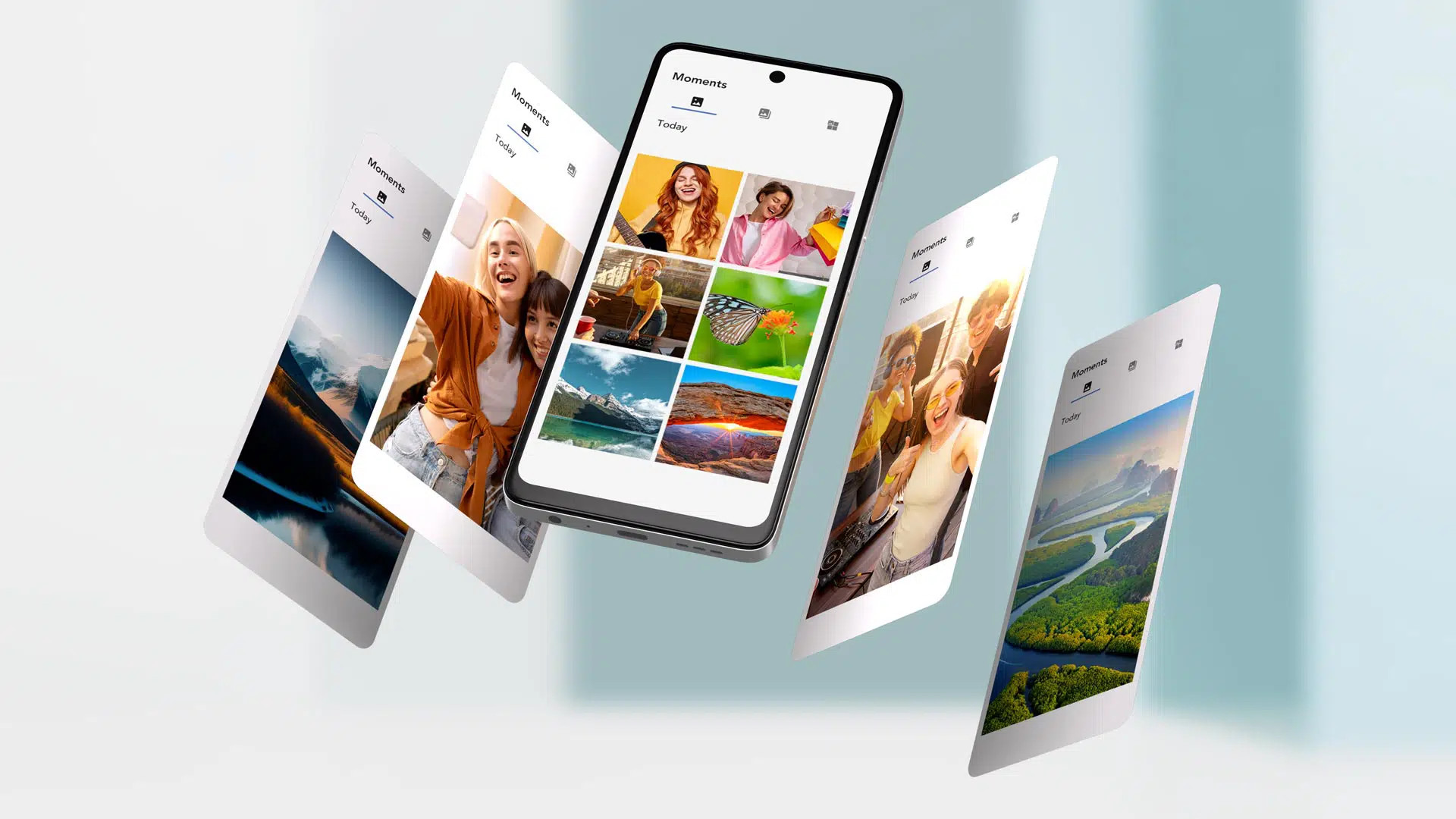TCL’s new smartphones have paper-like displays to protect your eyes
The eyes have it – but should we be concerned about display quality?

Sign up for breaking news, reviews, opinion, top tech deals, and more.
You are now subscribed
Your newsletter sign-up was successful
Before IFA 2023 officially kicks off later this week, TCL has revealed a pair of new Android smartphones that sport paper-like displays. They're based on tech previously seen in the company’s tablets, which is easy on the eyes (quite literally, as the matte displays are designed to be eye-friendly).
These phones are the TCL 40 Nxtpaper and TCL 40 Nxtpaper 5G, which as the names clearly show use ‘Nxtpaper’ displays as previously witnessed on a mid-range 10-inch tablet called the TCL Nxtpaper 10s.
There are multiple strings to the Nxtpaper display’s eyecare bow. They are low blue light certified (by the industry standard TUV), and are pleasant to look at thanks to the paper-like matte effect which the screen sports. This means it’s anti-glare, making for comfy viewing too, and the display actually has a paper-like texture and feel when you touch the screen.
The display is fingerprint smudge resistant, too, again helping to maintain the clarity of what’s on the screen in that respect.
Despite the paper texture, and the low blue light tech, TCL makes it clear that the display retains a natural color tonality, and color quality isn’t compromised.

So what about specs? Despite the fact that you’d probably assume the models are pretty much the same, save for 5G support, the 5G-toting model actually has very different hardware.
With the TCL 40 Nxtpaper you get a 6.78-inch FHD+ display, which is driven by a MediaTek Helio G88 SoC, plus there’s 8GB of RAM and 256GB storage.
Sign up for breaking news, reviews, opinion, top tech deals, and more.
As for the TCL 40 Nxtpaper 5G, that offers a slightly more compact 6.6-inch HD+ display, with a MediaTek Dimensity 6020 processor, along with 6GB of RAM and 256GB of storage.
For the cameras, the base model offers a 50MP main camera on the rear, and a 32MP front camera. The 5G handset is again somewhat different with a 50MP rear camera array, and an 8MP front-facer.
Both phones have a 5,000 mAh battery, and of course the 5G version has support for that cellular standard, whereas the base model is 4G.
TCL is apparently pushing these phones out in Europe to begin with, and only availability in that region has so far been confirmed, but we’re expecting the devices to debut elsewhere soon enough.
As Phone Arena, which spotted these launches, reports, pricing in Europe puts the 5G handset as 25% more expensive. The TCL 40 Nxtpaper carries a price tag of €200 (around $220 / £170 / AU$390), and the TCL 40 Nxtpaper 5G is pitched at €250 (around $275 / £215 / AU$490). So, these are firmly in the same category as the best cheap phones...

Analysis: Eye comfort – but at what cost?
This is quite an important one to us, as we’re always quite conscious how much time we spend staring at screens at close range (between our phone, tablet, laptop, and desktop monitor). There’s a nagging voice in the back of our mind constantly reminding us about limiting screen time as much as is feasible, and not running our eyes ragged – so any moves to help on this front are welcome in our book.
The Nxtpaper certainly has a few moves at its disposal to help with eye-friendliness, which sound genuinely useful. That said, the proof will be in the pudding of how these screens actually look in real life, rather than on paper (no pun intended).
Now, the note of caution is that in our TCL Nxtpaper 10s review (that mid-range 10-inch tablet we mentioned before), we didn’t find the display to be all that wonderful. Our reviewer found the eyecare measures worthwhile, but noted that they came at the cost of knocking the image quality somewhat, with a lack of sharpness evident.
That said, on a smaller screen, any issues with a slight amount of fuzziness could be minimized, especially if TCL has honed the Nxtpaper tech since that tablet was manufactured. We shall see, and we’re keen to see how these smartphones pan out.
You might also like
Darren is a freelancer writing news and features for TechRadar (and occasionally T3) across a broad range of computing topics including CPUs, GPUs, various other hardware, VPNs, antivirus and more. He has written about tech for the best part of three decades, and writes books in his spare time (his debut novel - 'I Know What You Did Last Supper' - was published by Hachette UK in 2013).